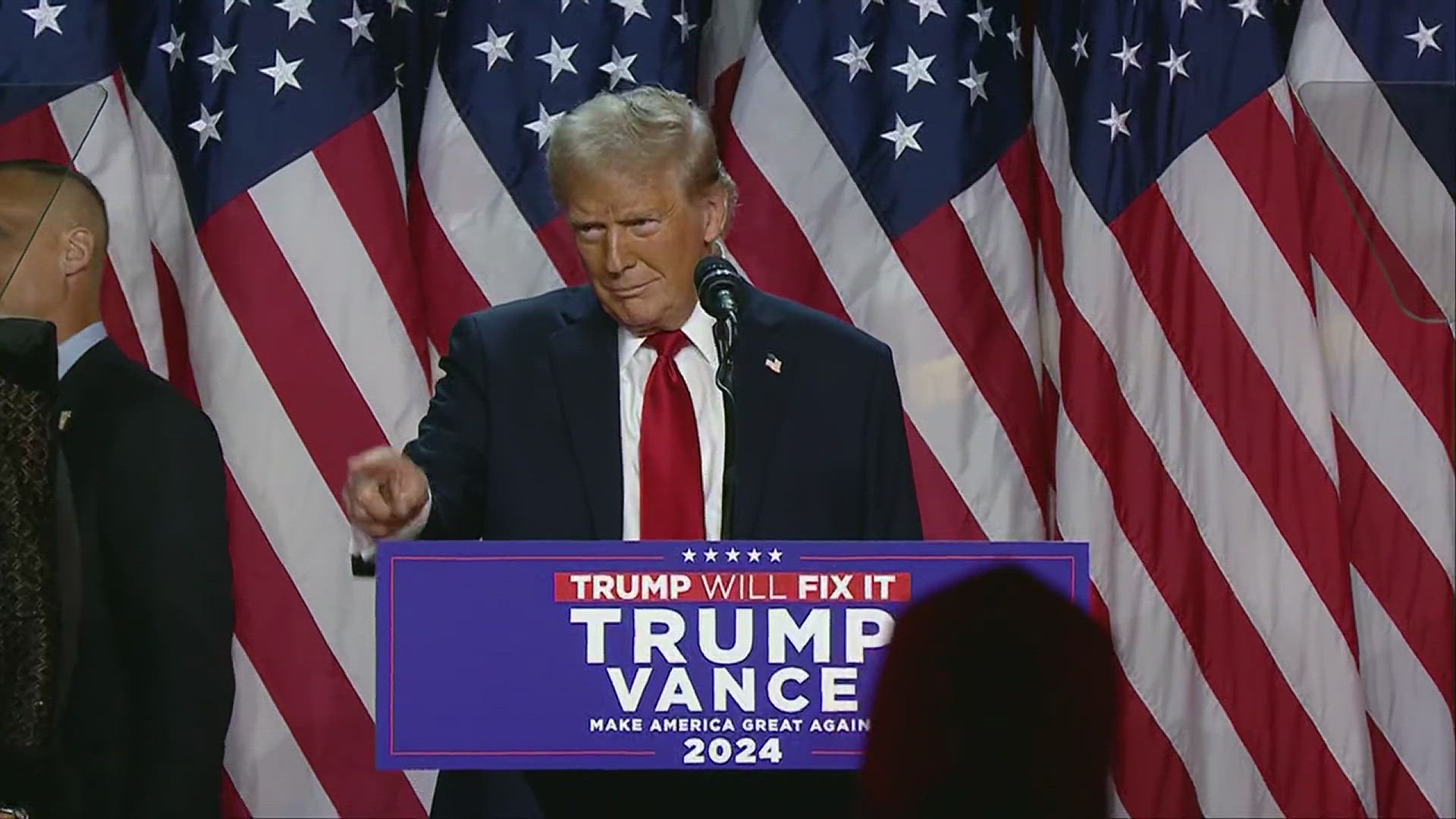PENNSYLVANIA, USA — A new presidential administration always means new policies and President-Elect Donald Trump is beginning to lay out his potential proposals online.
On Monday, Trump took to Truth Social saying he would place 25% tariffs on all goods coming from Mexico and Canada as one of his first executive orders.
The U.S. has enjoyed free trade with Mexico and Canada for free since the North American Free Trade Agreement went into effect in 1994.
During his first term, the president-elect renegotiated the trade deal, signing the United States-Mexico-Canada agreement in 2018 that went into effect in 2020.
"President Trump now feels that that agreement still wasn’t sufficient and what he is proposing is that we increase tariffs, actually put tariffs in place on Mexico and Canada, tariffs that have not been in place at all under either the NAFTA of the USMCA," said Terrence Guay, clinical professor of internal business and associate dean Penn State's Smeal College of Business.
Guay said Trump’s intent is to bring back manufacturing jobs by reversing trade flows, but says the impact on American companies may offset the gains.
"President Trump is also using this, I think, as leverage on the immigration issue," Guay said. "He’s trying to threaten Mexico by saying if you don’t find a way to reduce the number of immigrants coming across the U.S. border from Mexico, tariffs will also be added onto that."
Economists suggest the tariffs could translate to higher prices.
"The agricultural goods coming from Mexico, think avocados and other types of citrus products, that’s going to become more expensive and that has a ripple effect across the rest of the economy," Guay said.
Including, Guay said, in the Commonwealth.
"As a Pennsylvania company in Pittsburgh or Philadelphia or throughout the Harrisburg area imports parts of their goods from Mexico, that’s going to raise the cost that they then have to pay and then pass that on to consumers," Guay said.
Mexican leadership suggests the country would retaliate with tariffs of its own if Trump’s proposed tariffs are enacted.



